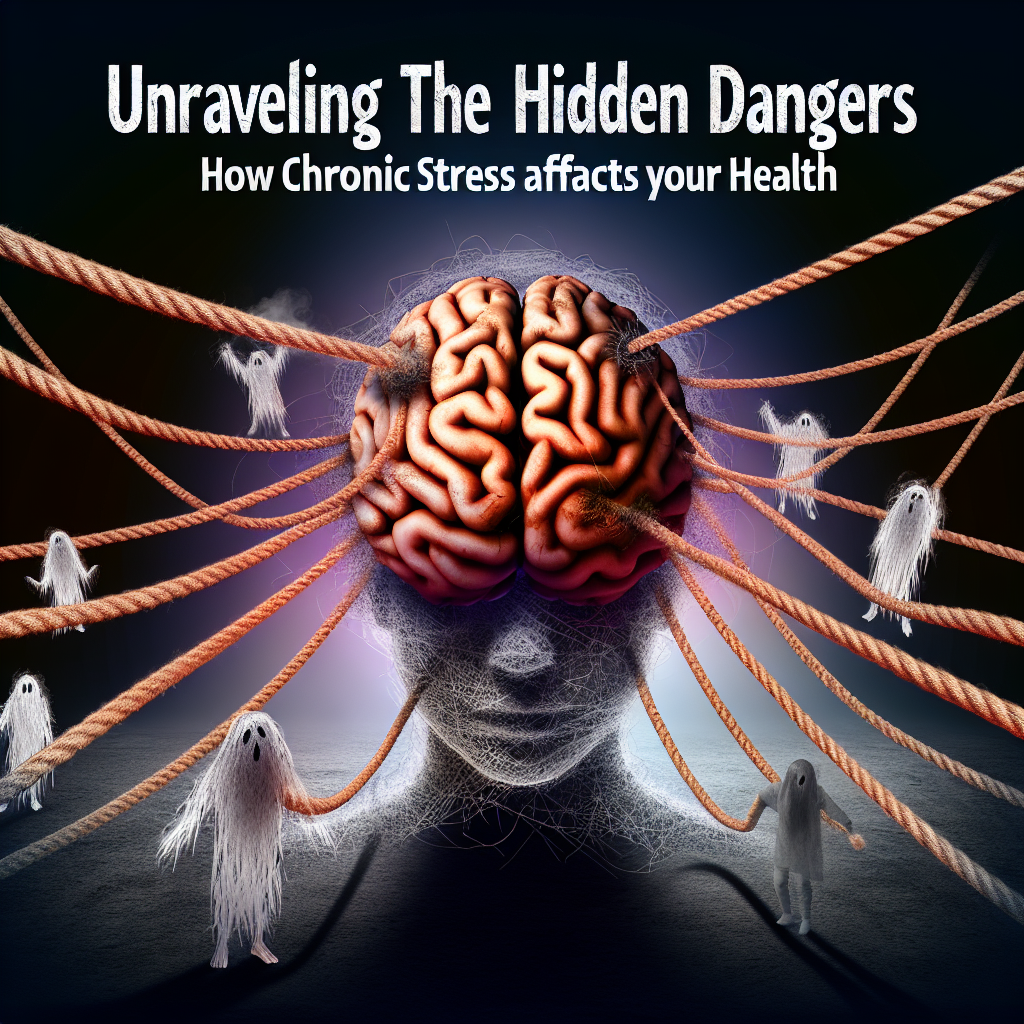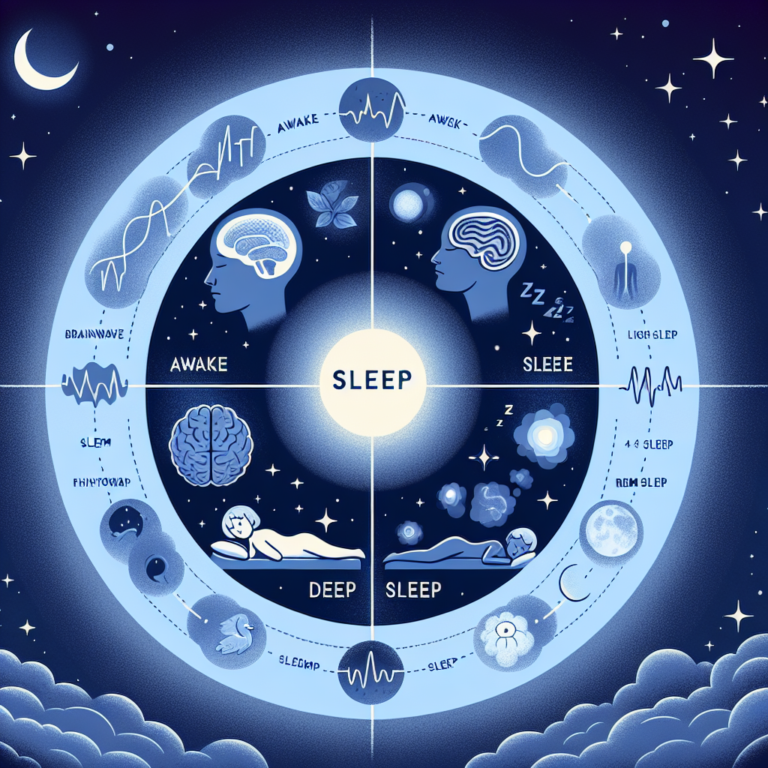
Unraveling the Hidden Dangers: How Chronic Stress Affects Your Health – The Ultimate Guide
Introduction
In today’s fast-paced world, stress has become a common companion in our daily lives. Whether it’s deadlines at work, family responsibilities, or societal expectations, the pressures can feel unrelenting. Yet, under the surface, chronic stress is a silent predator lurking in the shadows of our health, threatening our well-being in profound ways. Unraveling the Hidden Dangers: How Chronic Stress Affects Your Health is essential not just for understanding the mechanics of stress but for taking actionable steps towards better health.
The Stress Response: A Brief Overview
Before diving deeper into the consequences of chronic stress, it’s crucial to understand what stress is and how our bodies respond to it. Stress triggers the "fight or flight" response, releasing hormones like cortisol and adrenaline. This response can be beneficial in short bursts—helping us escape danger, for example. However, when stress becomes chronic, it leads to wear-and-tear on both our mental and physical health.
The Physical Toll of Chronic Stress
1. Cardiovascular Health: The Heart’s Burden
Chronic stress is a significant risk factor for cardiovascular diseases. Research indicates that persistent stress can lead to high blood pressure, increased heart rate, and even heart attacks.
Case Study: The Whitehall Study
A landmark study involving over 10,000 British civil servants demonstrated that those in lower employment grades reported higher stress levels and were more susceptible to heart disease. This case exemplifies how societal factors influence stress levels and subsequently impact cardiovascular health.
| Health Outcome | Low Stress | High Stress |
|---|---|---|
| Blood Pressure | 120/80 | 140/90 |
| Heart Disease Prevalence (%) | 5% | 15% |
2. Immune System Suppression: The Hidden Vulnerability
Chronic stress can weaken the immune system, making individuals more susceptible to infections and diseases. Research has shown that stress affects the proliferation of immune cells.
Analysis: A study by Cohen et al. found that individuals experiencing chronic stress were significantly more likely to contract the common cold.
3. Digestive Issues: The Gut-Brain Connection
The gut and brain are closely interconnected, often profoundly affected by stress. Chronic stress can lead to disorders like irritable bowel syndrome (IBS) and ulcers.
Case Study: The Effect of Stress on IBS
A longitudinal study found that participants who reported high levels of stress were three times more likely to develop IBS.
4. Hormonal Imbalances: The Endocrine Dilemma
Chronic stress affects hormonal balances, leading to conditions like adrenal fatigue and increased cortisol levels. Elevated cortisol can promote weight gain, especially around the abdomen.
Chart: Cortisol Levels vs. Stress Levels
| Stress Level | Cortisol Level (nmol/L) |
|---|---|
| Low | 130 |
| Moderate | 180 |
| High | 250 |
The Psychological Impact of Chronic Stress
1. Anxiety and Depression: A Silent Epidemic
Chronic stress has been linked to increased levels of anxiety and depression. Prolonged exposure to stress hormones can change brain chemistry, leading to these mood disorders.
Case Analysis: A meta-analysis suggests that individuals with chronic stress have a 60% higher rate of developing anxiety disorders.
2. Cognitive Decline: The Brain Under Siege
Prolonged stress can affect brain structures involved in memory and learning, particularly the hippocampus.
Case Study: The Aging Brain
Research found that stress significantly accelerated cognitive decline in older adults, reinforcing the concept that stress not only affects health but also impacts life quality.
3. Sleep Disorders: The Restlessness of Stress
Sleep is often compromised in stressed individuals, leading to insomnia and poor-quality sleep.
Graph: Sleep Quality vs. Stress Levels
| Stress Level | Sleep Quality (Scale of 1-10) |
|---|---|
| Low | 8 |
| Moderate | 5 |
| High | 2 |
Unraveling Stress: Effective Coping Mechanisms
Having identified the hidden dangers of chronic stress, it’s essential to consider pathways to manage and mitigate its effects.
1. Mindfulness and Meditation
Practicing mindfulness and meditation can significantly lower stress levels. Studies show that participants who engaged in regular mindfulness practice experienced a notable decrease in cortisol levels.
2. Physical Activity
Regular exercise serves as a powerful stress reliever. Engaging in physical activities releases endorphins, hormone levels normalize, and mood improves.
3. Social Connections: The Support Network
Building strong social networks can serve as a buffer against stress. Emotional support from friends and family is invaluable.
4. Professional Help
Sometimes, the best approach is to seek professional assistance. Therapists can help individuals develop coping strategies tailored to their situations.
Conclusion
Unraveling the Hidden Dangers: How Chronic Stress Affects Your Health reveals a landscape where our daily pressures carve away at our well-being. The interplay between stress and health is multifaceted and pervasive, impacting both our bodies and minds. However, by understanding these hidden dangers, we can take actionable steps toward better health, seeking support when necessary and adopting lifestyle changes that favor stress reduction.
As we navigate these complexities, remember: awareness is the first step toward empowerment, leading us not only to manage stress better but also to enhance our overall life quality.
FAQs
1. What are the early signs of chronic stress?
Common early signs include irritability, fatigue, sleep disturbances, and difficulty concentrating.
2. How can I tell if my stress levels are chronic or acute?
If you experience stress symptoms for an extended period (weeks or months), this is likely chronic stress, whereas acute stress is typically short-lived and tied to specific events.
3. Can chronic stress lead to serious health conditions?
Yes, chronic stress can contribute to cardiovascular diseases, diabetes, and mental health issues like anxiety and depression.
4. Are there any foods that can help reduce stress?
Foods rich in omega-3 fatty acids, complex carbohydrates, magnesium, and vitamins B and C can help regulate stress levels.
5. How long does it take to see improvements in stress levels after implementing coping strategies?
While some individuals may see improvements within weeks, significant changes can sometimes take months of consistent effort.
With dedicated effort and the right tools, managing stress is a journey we can all embark on together.

















